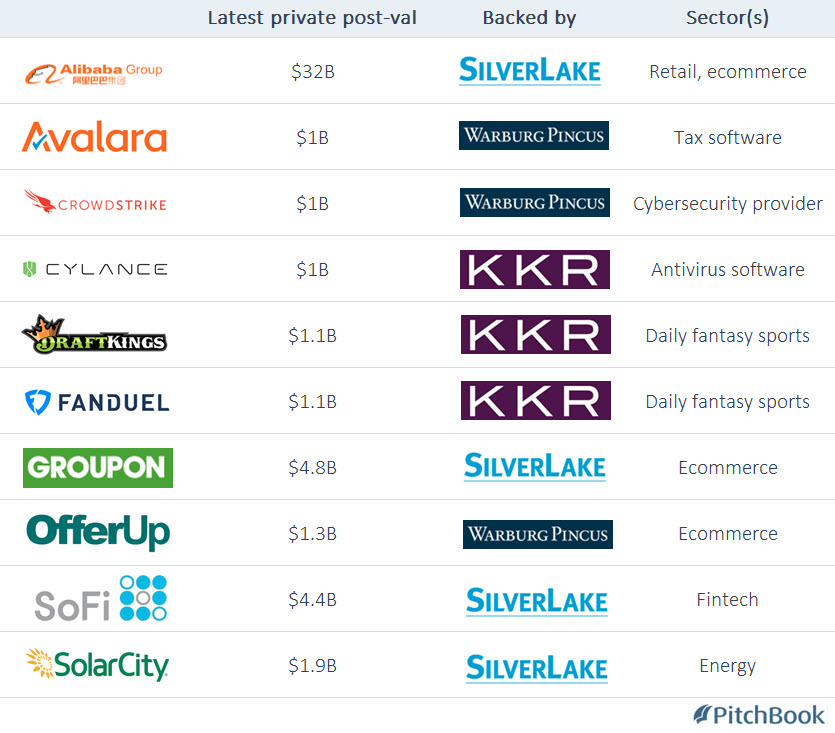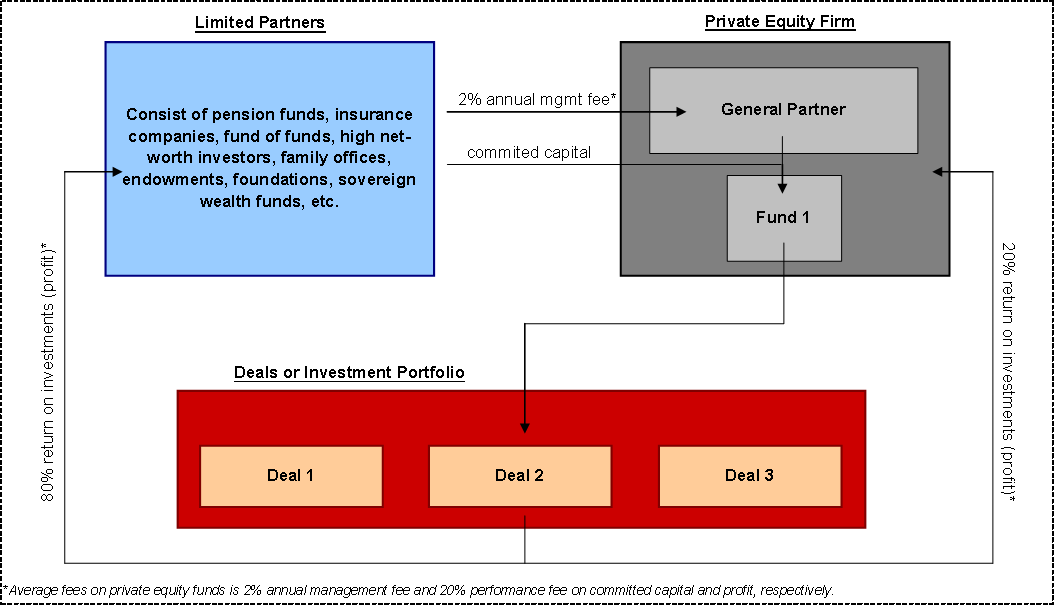How Does A Private Equity Firm Increase Business Value?
Entering into private equity directly after an MBA is almost difficult unless you have actually done investment banking or private equity before the MBA. You could finish the MBA, utilize it to win a full-time financial investment banking job, and then hire for private equity functions, but that’s even more challenging than breaking in pre-MBA from investment banking.
Leading qualifications (grades, test scores, and university track record); A lot of and interview preparation; Something that makes you appear to be a human rather than a robotic; The capability to about companies and investments rather than just “selling” them. A strong with the firm PE firms are much smaller sized than banks, so “fit” and soft abilities are a lot more crucial.
Like financial investment banks, Private Equity companies normally have a relatively stiff seniority structure with huge distinctions in experience level and duties from top to bottom. In general the senior-most specialists are accountable for deal sourcing, relationship management, and investment choice making, while the junior-most specialists bring the brunt of the analytical work.
This is, at least in part, because Private Equity companies tend to be much smaller than investment banking divisions at significant banks. As a result, junior experts will tend to have a lot more interaction with senior specialists, fostering a lot more chance to work straight with and learn straight from the most experienced experts in the firm.
The associate handles most of the financial modeling and preliminary due diligence for financial investment chances, while helping with the management and tracking of portfolio business as well as sourcing offers and supporting transactions. More day-to-day information on the partner’s function are offered later on in this guide. A majority of Pre-MBA partners (specifically in the United States) are hired for a two-year to three-year program. (Such a change would be sped up if the United States and other governments followed the lead of European nations in leveling the tax playing field.) Public companies might then gain from the chances afforded by a buy-to-sell strategy. Investors would benefit, too, as the higher competition in this space would create a more efficient marketone in which private equity partners were no longer so highly preferred over the investors in their funds.

You’ve most likely become aware of the term private equity (PE). Approximately $3.9 trillion in possessions were held by private equity companies since 2019, which was up 12.2 percent from the year before. Investors look for private equity funds to earn returns that are much better than what can attained in public equity markets. https://player.vimeo.com/video/445058690
Read on to learn more about private equity consisting of how it develops value and some of its essential strategies. Private equity refers to capital expense made into business that are not openly traded. The majority of private equity firms are open to recognized investors or those who are deemed high-net-worth, and successful private equity managers can make countless dollars a year.
Work With A Private Equity Firm – Dealforce
Private equity is ownership or interest in an entity that is not publicly noted or traded. A source of financial investment capital, private equity originates from high-net-worth people and firms that purchase stakes in private companies or obtain control of public companies with strategies to take them private, eventually delisting them from stock market (titlecard capital fund).


Due to the fact that private equity involves direct investmentoften to acquire influence or control over a business’s operationsa considerable capital investment is needed, which is why funds with deep pockets dominate the market. The minimum amount of capital required for certified investors can vary depending on the firm and fund. Some funds have a $250,000 minimum entry requirement, while others can need millions more.
Partners at private-equity firms raise funds and manage these cash to yield favorable returns for shareholders, generally with an financial investment horizon of between four and seven years. The private equity business draws in the very best and brightest in corporate America, including leading entertainers from Fortune 500 business and elite management consulting firms.
The fee structure for private-equity companies differs however typically includes a management and efficiency charge. An annual management charge of 2% of possessions and 20% of gross earnings upon sale of the company prevails, though incentive structures can vary significantly (securities fraud racketeering). Considered that a private-equity firm with $1 billion of possessions under management (AUM) may run out than 2 lots financial investment specialists, and that 20% of gross earnings can generate tens of millions of dollars in fees, it is easy to see why the market brings in top skill.

Principals, on the other hand, can earn more than $1 million in (recognized and latent) settlement each year. Private-equity firms have a series of investment preferences. Some are rigorous financiers or passive investors entirely depending on management to grow the business and produce returns. Due to the fact that sellers usually see this as a commoditized technique, other private-equity companies consider themselves active investors.
Active private equity companies might have a comprehensive contact list and C-level relationships, such as CEOs and CFOs within a provided industry, which can help increase earnings. They may likewise be experts in recognizing operational effectiveness and synergies. If a financier can bring in something special to an offer that will enhance the company’s worth over time, they are more most likely to be viewed favorably by sellers.
It is no surprise that the largest investment-banking entities such as Goldman Sachs (GS), JPMorgan Chase (JPM) and Citigroup (C) often help with the biggest deals – racketeering conspiracy commit. When it comes to private-equity companies, the funds they offer are just available to certified investors and might only enable a restricted variety of investors, while the fund’s founders will frequently take a rather big stake in the firm as well.
Private Equity Firms Start To Outline Pandemic Impact
For example, the Blackstone Group (BX) trades on the New York Stock Exchange (NYSE) and has actually been involved in the buyouts of business such as Hilton Hotels and MagicLab. Private-equity companies carry out 2 critical functions: offer origination/ deal executionportfolio oversight Offer origination includes developing, keeping and developing relationships with mergers and acquisitions (M&A) intermediaries, investment banks, and comparable transaction professionals to protect both high-quantity and top quality offer circulation.
Some companies work with internal staff to proactively determine and reach out to business owners to produce transaction leads. racketeering conspiracy commit. In a competitive M&A landscape, sourcing proprietary offers can help ensure that funds raised are successfully deployed and invested. Additionally, internal sourcing efforts can lower transaction-related expenses by eliminating the investment banking middleman’s fees.
As such, deal origination specialists attempt to develop a strong rapport with transaction specialists to get an early introduction to an offer. It is necessary to note that financial investment banks typically raise their own funds, and for that reason may not just be a deal recommendation, but also a completing bidder. Simply put, some financial investment banks take on private-equity companies in buying up excellent business.


Particular funds can have their own timelines, investment goals, and management viewpoints that separate them from other funds held within the exact same, overarching management firm. Effective private equity firms will raise many funds over their lifetime, and as companies grow in size and complexity, their funds can grow in frequency, scale and even uniqueness. To get more info regarding fund managers and also - research the videos and -.
Tyler Tysdal is a long-lasting entrepreneur assisting fellow entrepreneurs offer their company for optimum worth as Managing Director of Freedom Factory, the World’s Best Business Broker located in Denver, CO. Freedom Factory assists entrepreneurs with the greatest deal of their lives.
After the financial investment committee indications off to pursue a target acquisition candidate, the offer professionals submit an offer to the seller. If both parties choose to move on, the offer professionals work with various deal advisors to include financial investment lenders, accountants, legal representatives and specialists to execute the due diligence phase.
This part of the procedure is vital, as specialists can reveal deal-killers, such as significant and previously concealed liabilities and threats. There are a lot of private equity investment strategies – grant carter obtained. Two of the most typical are leveraged buyouts and venture capital financial investments. Leveraged buyouts are precisely how they sound. A target firm is bought out by a private equity firm.
The acquirer (the PE firm) seeks to purchase the target with funds gotten through the usage of the target as a sort of collateral. In a leveraged buyout, getting PE firms have the ability to purchase business with only needing to install a fraction of the purchase cost. private equity fund. By leveraging the investment, PE companies intend to optimize their possible return.
PE companies will typically see that potential exists in the market and more significantly the target firm itself, and often due to the absence of revenues, capital and debt financing readily available to the target. civil penalty $. Companies have the ability to take considerable stakes in such companies in the hopes that the target will develop into a powerhouse in its growing industry.
The Pros And Cons Of Having Private Equity Firms
Oversight and management comprise the second essential function of PE professionals. To name a few assistance work, they can stroll a young business executive personnel through best practices in strategic preparation and monetary management. In addition, they can assist institutionalise new accounting, procurement, and IT systems to increase the worth of their investment.


